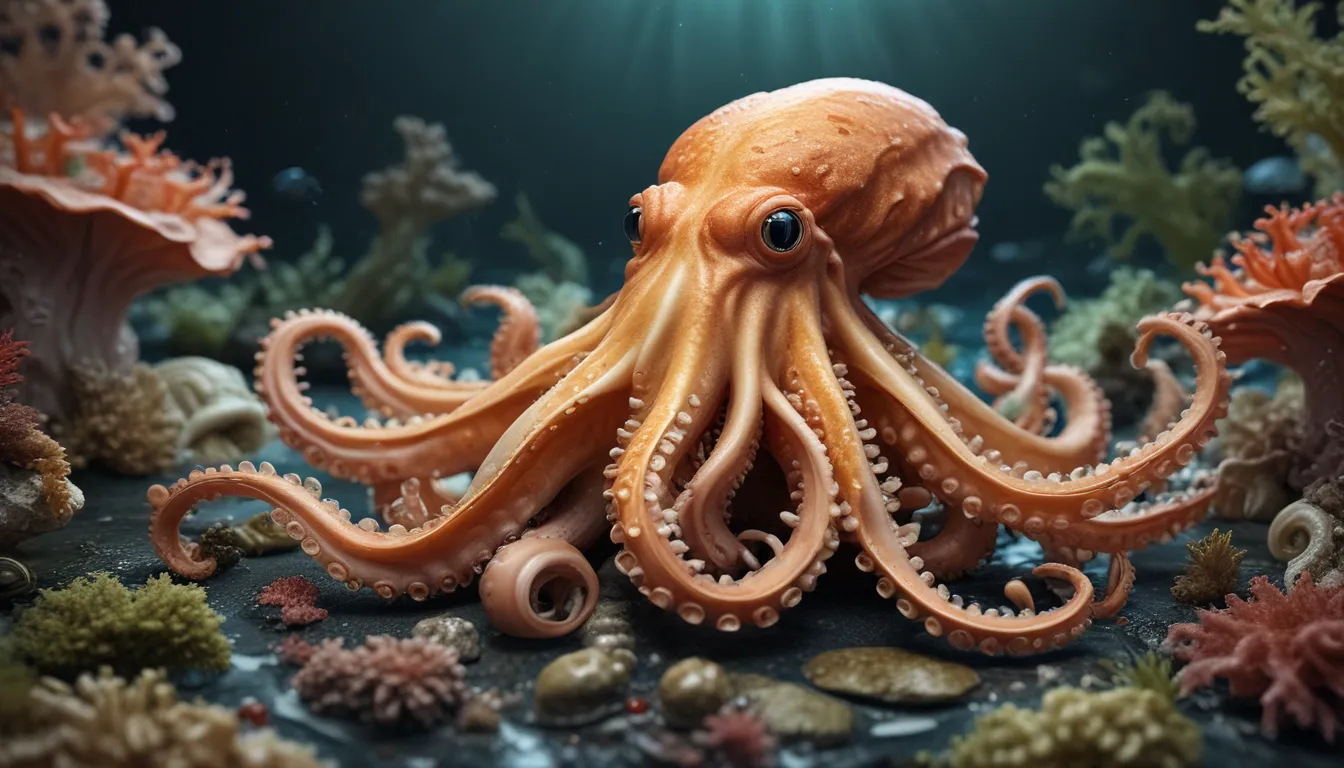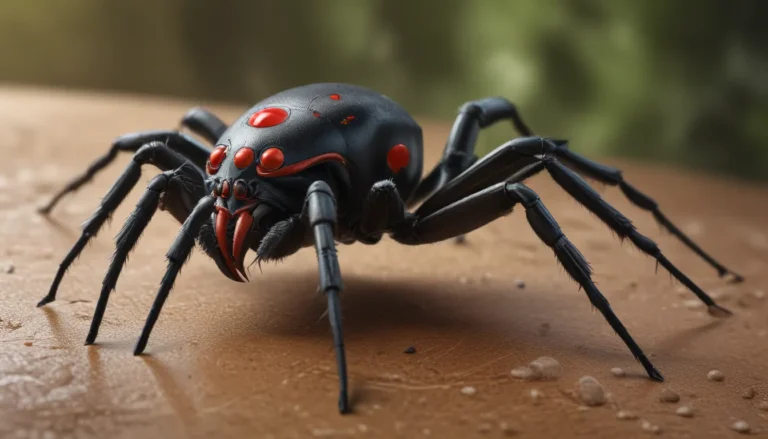The pictures we use in our articles might not show exactly what the words say. We choose these pictures to make you interested in reading more. The pictures work together with the words but don’t take their place. The words still tell you the important facts.
Cephalopods, a group of marine animals including octopuses, squids, and cuttlefish, are known for their intriguing characteristics and behaviors. These captivating creatures possess a wide array of features that set them apart from other sea dwellers. In this article, we will dive deep into the world of cephalopods and uncover 19 fascinating facts about these remarkable marine animals. From their exceptional camouflage abilities and complex communication techniques to their impressive problem-solving skills, cephalopods never fail to astonish and intrigue us.
Unveiling the Mysteries of Cephalopods
Cephalopods, such as octopuses, squids, and cuttlefish, are mesmerizing creatures that populate the vast oceans of our planet. Their unique traits and behaviors have made them one of the most enigmatic groups of marine animals, captivating humans for generations.
The Wonders of Cephalopod Camouflage
One of the most remarkable abilities of cephalopods is their unmatched skill in changing their skin color. These masters of disguise can swiftly alter the color and pattern of their skin to blend seamlessly with their surroundings or convey messages to other creatures.
The Three Hearts of Octopuses
Contrary to humans, octopuses possess three hearts. Two of these hearts pump blood to the gills, while the third heart circulates blood throughout the rest of the body, showcasing the unique cardiovascular system of these intelligent creatures.
The Intricacies of Cephalopod Nervous Systems
Cephalopods boast large brains and highly developed nervous systems, enabling them to exhibit complex behaviors and demonstrate impressive problem-solving capabilities. Their intelligence is evident in their ability to adapt to various challenges in their environment.
Mastering the Art of Swimming
Cephalopods utilize jet propulsion as a means of navigating through the water. By expelling water through a siphon, they can swiftly propel themselves in any direction, showcasing their agility and speed in underwater movement.
The Defensive Ink of Cephalopods
In moments of peril, certain cephalopods release a cloud of ink as a defense mechanism. This ink serves as a distraction, allowing them to escape from predators and survive in the face of danger.
The Intelligence of Cephalopods
Studies have revealed the impressive problem-solving skills of octopuses and other cephalopods. These creatures have been observed opening jars, navigating mazes, and even utilizing tools, demonstrating their extraordinary cognitive abilities.
Visionary Cephalopod Eyes
Cephalopods possess highly advanced eyesight, capable of perceiving a wide range of colors and depths. Their eyes are considered among the most sophisticated in the animal kingdom, providing them with a distinct advantage in their marine environment.
The Regenerative Powers of Cephalopods
In the event of losing a tentacle or part of an arm, cephalopods have the remarkable ability to regenerate the lost limb over time. This unique trait enables them to recover from injuries and continue thriving in their ocean habitat.
A Glimpse into Cephalopod Diets
Cephalopods are carnivorous creatures that prey on small fish, crustaceans, and other mollusks. Their strong beaks and tentacles are well-suited for capturing and consuming their prey, showcasing their predatory nature in the underwater world.
Journey into the World of Cephalopod Mating Behaviors
Cephalopods engage in intricate courtship rituals, involving elaborate displays and color changes. Some species possess specialized reproductive organs, adding complexity and diversity to their mating behaviors within the marine ecosystem.
The Magnificence of the Colossal Squid
The colossal squid, also known as the Antarctic squid, reigns as the largest cephalopod species known to date. With lengths reaching up to 46 feet and eyes the size of dinner plates, this colossal creature commands awe and admiration in the depths of the ocean.
The Art of Cephalopod Camouflage
Through specialized skin cells known as chromatophores, cephalopods can alter their color, pattern, and texture to blend harmoniously with their surroundings. Their mastery of camouflage makes them unparalleled in the realm of disguise in the oceanic world.
Lifespans of Cephalopods
Most cephalopod species have relatively short lifespans, typically lasting one to two years. However, certain deep-sea species exhibit longevity, surviving for several years in their harsh marine environments.
Adaptability of Cephalopods
Cephalopods have evolved to thrive in diverse marine habitats, ranging from coral reefs to the deep ocean. Their exceptional adaptability allows them to endure and flourish in a variety of underwater conditions, showcasing their resilience and survival skills.
Illuminating Bioluminescence of Cephalopods
Select species of cephalopods, such as the firefly squid, possess light-producing organs called photophores. This bioluminescence serves various purposes, including attracting prey and communicating with mates, adding a mesmerizing glow to the marine world.
Unique Locomotion Strategies of Cephalopods
While most cephalopods utilize jet propulsion for swimming, some species, like the octopus, exhibit crawling or walking motions along the seafloor using their tentacles. Their diverse methods of locomotion highlight the versatility and adaptability of these intriguing marine animals.
The Ancient Charm of the Chambered Nautilus
The chambered nautilus, a cephalopod species, has remained virtually unchanged for millions of years, earning the title of a "living fossil." Its enduring existence offers a glimpse into the past and highlights the resilience of cephalopods throughout evolutionary history.
The Learning Abilities of Cephalopods
Studies have demonstrated the remarkable learning capacity of cephalopods, showcasing their ability to acquire new skills and retain knowledge. This adaptability contributes to their survival and success in the complex marine ecosystem, underscoring their cognitive prowess and adaptive nature.
Embracing the Enchantment of Cephalopods
In conclusion, cephalopods stand out as extraordinary creatures with a myriad of unique and exceptional characteristics. From their intelligence and problem-solving skills to their camouflage abilities and locomotion strategies, these marine animals continue to captivate scientists and enthusiasts alike.
Whether it's the adaptable octopus, the colorful cuttlefish, or the agile squid, cephalopods embody resilience and ingenuity in the vast oceans. As we embark on a journey to explore and appreciate these captivating creatures, let us also remember the importance of conservation efforts and sustainable practices to safeguard their existence and preserve the biodiversity of our oceans.
FAQs: Unveiling Cephalopod Secrets
- Are cephalopods considered intelligent?
-
Yes, cephalopods, especially octopuses and giant squids, are renowned for their high levels of intelligence. They exhibit problem-solving skills, memory retention, and even playful behavior, showcasing their cognitive abilities.
-
Can all cephalopods change color?
-
While not all cephalopods possess the ability to change color, most species, such as octopuses, squids, and cuttlefish, utilize specialized cells called chromatophores to alter their skin color and patterns for camouflage or communication purposes.
-
Can cephalopods regenerate lost limbs?
-
Many cephalopods have the remarkable ability to regenerate lost tentacles or limbs. This regrowth process may take several weeks, but they are capable of fully restoring their missing appendages, demonstrating their extraordinary regenerative powers.
-
Are cephalopods social animals?
-
While some cephalopods lead solitary lives, others, like octopuses, exhibit social behaviors during mating or aggregation events. Their social structures, though less complex than those of certain animal groups, showcase varying degrees of social interaction within cephalopod species.
-
Are cephalopods found in freshwater habitats?
- No, the majority of cephalopods are exclusively found in marine environments. Their specialized adaptations and evolutionary traits make them well-suited for life in the ocean, with limited observations of cephalopods in freshwater habitats.
Embark on a journey into the mesmerizing world of cephalopods, uncovering the secrets of squid, witnessing the wonders of giant squids, and exploring the ancient allure of the chambered nautilus. Embrace the marvels of these creatures as they navigate the depths of the oceans with grace and ingenuity, captivating us with their extraordinary abilities and resilience.
Was this page helpful?
Our commitment to delivering engaging and trustworthy content remains at the core of our mission. Each fact shared on our platform is contributed by a community of real users, ensuring diverse insights and information. Our dedicated editors meticulously review each submission to maintain the highest standards of accuracy and reliability, guaranteeing that the facts we present are not only fascinating but also credible. Trust in our dedication to quality and authenticity as you embark on your exploration and discovery journey with us.






